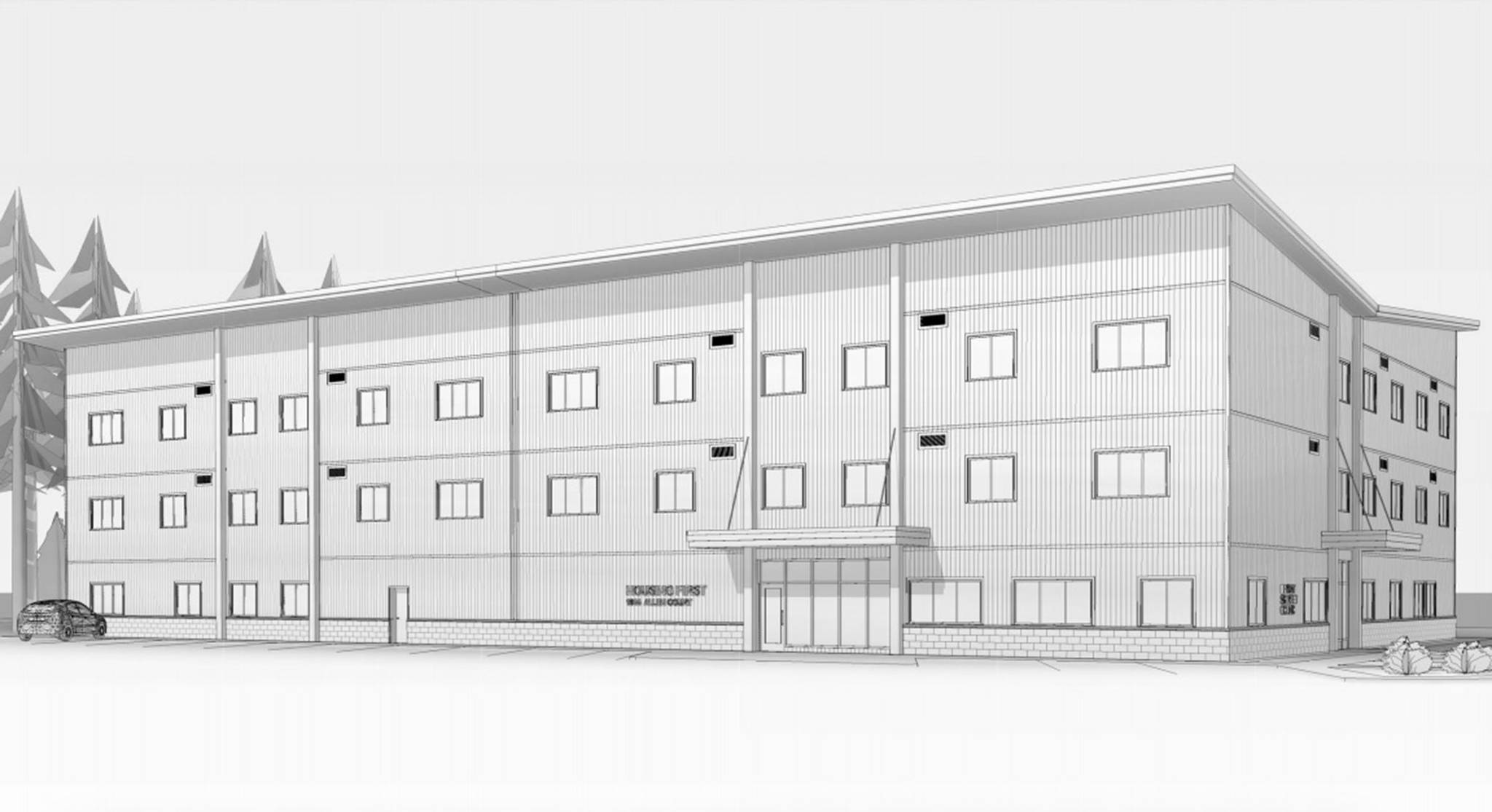Housing First might be expanding sooner than planned, and the city might again help foot the bill.
City and Borough of Juneau Assembly members asked city staff to write an ordinance that could commit $1.8 million from tobacco tax, sales tax and the city’s savings for the next phase of the project. This money, in addition to substantial grant funding and a few other local sources, would be enough to double the building’s capacity.
The public will have a chance to weigh in on this ordinance on Sept. 17, and the Assembly members will then vote on whether to appropriate the money at that meeting. Multiple Assembly members, including Maria Gladziszewski, asserted during Thursday’s meeting that they were wary of spending more money.
“We have obligated a lot of extra money recently, and it’s very troubling to me,” Gladziszewski said. “The only reason I’m supportive of this is because of the ability to get this money that doesn’t look like it would come again.”
Housing First is a 32-bed facility that houses some of Juneau’s most vulnerable residents, and the plan has been to expand the facility in the near future. As explained by Bruce Denton, vice chair of the Juneau Housing First Collaborative (JHFC), the availability of a $2.8 million grant has given the board an opportunity to expand the facility sooner than planned.
Applications for the grant, which is from the Alaska Housing and Finance Corporation Greater Opportunities for Affordable Living funding, are due by Oct. 5, Denton explained at a recent Chamber of Commerce meeting.
Mariya Lovishchuk, the executive director of the Glory Hole homeless shelter that staffs Housing First, spoke at Thursday’s Assembly Committee of the Whole meeting about how rare this grant opportunity is.
“I’m really shocked that we’re sitting here now trying to get this grant, but also we have a really good chance of getting it,” Lovishchuk said. “I don’t anticipate this kind of opportunity coming to us in the near future.”
The JHFC originally set a goal to more than double the size of the building and add 45 new rooms in addition to the current 32 rooms. In a letter to the Assembly, Denton wrote that the JHFC talked with city officials and determined that it was more realistic, in terms of the time and money available, to add 32 more units instead of 45 units.
A memo from MRV Architects stated that the overall cost of construction would be just shy of $6 million. Denton’s letter to the Assembly estimated that $2.8 million would come from the grant, $1.8 million from the city, and the remaining $1.3 million coming from the Rasmuson Foundation, the Alaska Mental Health Trust Authority, an Indian Community Development block grant and the Juneau Community Foundation and other local sources.
The city committed funds to the original building of the facility as well, eventually contributing a total of $2.7 million to the build.
The members of the Juneau Coalition on Housing and Homelessness wrote a letter to the Assembly in late July requesting that the Assembly come through with funding for the expansion.
The letter, which was signed by co-chairs Doug Harris and Gus Marx, detailed the fact that while Housing First has helped out in many ways, there are still many people in need of the services. According to the letter, there are 94 people on the waitlist for the JHFC. Sixty-four of these people, the letter states, are highly vulnerable and need a large amount of support.
“Many believe they are likely to die on the streets,” Harris and Marx wrote of the people on the waitlist.
Homelessness still on the rise
Statistics released this year have shown that while homelessness has actually increased from last year, some of Juneau’s most vulnerable residents are in much better situations now as a result of Housing First.
According to a Point In Time count done in January, an annual head count of the city’s homeless, there were 235 homeless people in Juneau. This was an increase of 20 people from 2017.
Even though the overall number of homeless increased, the Point in Time count showed that there were 44 people who were unsheltered and out on the street. This is a decrease of 15 people from the 2017 totals. The remainder of the people in the count were in emergency shelters or transitional housing, including Housing First.
A University of Alaska Fairbanks study compiled statistics specifically about the residents of Housing First and their usage of emergency care. Prior to living in Housing First, according to the study, the residents of the facility visited the emergency room 360 times in the six months prior to moving in. In the six months after moving in, they went to the emergency room 97 times (a decrease of 73 percent).
In the six months prior to moving in, the Housing First residents had 674 contacts with Juneau Police Department officers, according to the study. In the six months after moving in, they had 151 contacts with officers (a decrease of 77.6 percent). The largest decrease was in the usage of the Rainforest Recovery Center’s sleep-off center, as usage dropped by 99 percent.
According to a letter from Bartlett Regional Hospital CEO Chuck Bill, this decrease in Bartlett’s facilities hasn’t been saving the hospital money. Bill wrote that the biggest expense for these services is staffing, and they are still fully staffing the ER and the RRC sleep-off center.
• Contact reporter Alex McCarthy at 523-2271 or amccarthy@juneauempire.com. Follow him on Twitter at @akmccarthy.

